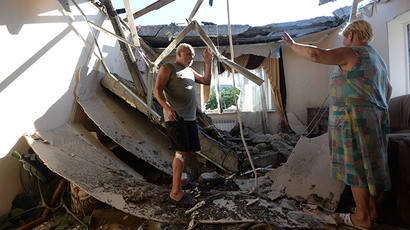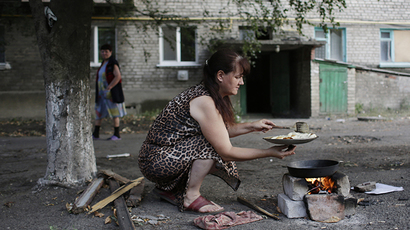Situation in Ukraine ‘nearing humanitarian catastrophe’ – Amnesty Intl
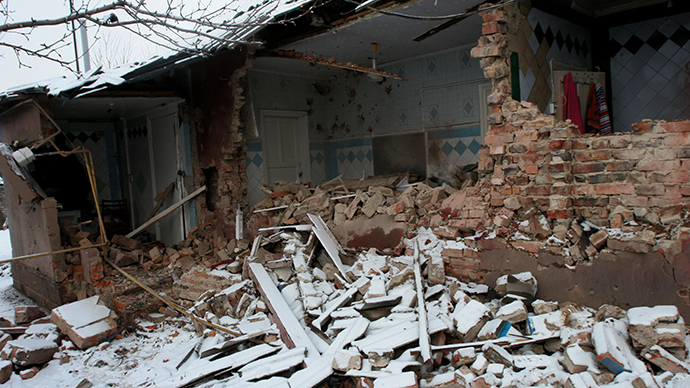
Eastern Ukraine is nearing a humanitarian catastrophe, as residents struggle to get food and medicine, rights group Amnesty International told Reuters. The UN refugee watchdog added that the elderly in the region could be severely hit by Kiev’s policies.
People in the southeastern Lugansk and Donetsk regions are struggling financially and are barely scraping by, according to the deputy director of Europe and Central Asia at Amnesty International, Denis Krivosheev.
“While it may be too early to call this a humanitarian catastrophe, it’s clearly progressing in that direction,” Krivosheev said, adding that pensioners are the most vulnerable part of the population.
READ MORE: Ukraine in ‘full-blown financial crisis’ – National Bank head
The United Nations High Commissioner for Refugees (UNHCR) also expressed major concern for the elderly, pointing to Kiev’s dangerous decision to transfer payouts of social benefits and pensions to government-controlled areas.
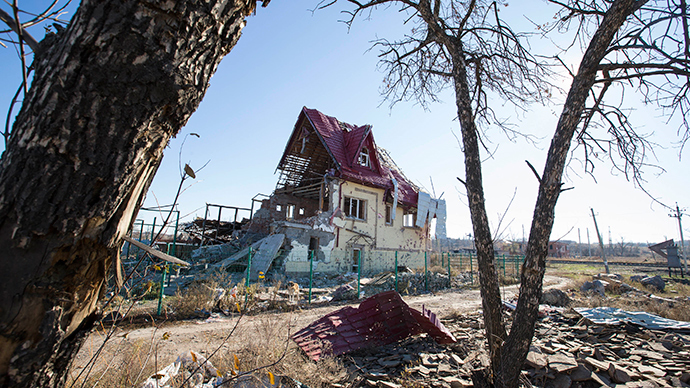
UNHCR spokesman William Spindler said that not everyone is able to pick up and leave their homes in southeastern Ukraine. So, the most vulnerable are neglected as they fail to receive needed financial support.
According to UN figures, around 5.2 million people in Ukraine are living in conflict zones. Of that number, 1.4 million are in very vulnerable conditions and require assistance as they struggle with the cold winter, money problems, and lack of services.
Moreover, Krivosheev stressed that aid sent to southeastern Ukraine from Russia and other countries – such as food and medicine – is often stifled by pro-Kiev private armies that are preventing it from reaching those in need, with the goal of starving the population there.
“Attempting to create unbearable conditions of life is a whole new ballgame...using starvation of civilians as a method of warfare is a war crime,” Krivosheev said.
He described the private armies as “renegade gangs” which need to be handled.
Some of the latest data from Ukraine points to a massive movement of people, with over one million forced to leave their homes.
Figures from the UN Office for the Coordination of Humanitarian Affairs (OCHA) show that 610,000 people have been uprooted in Ukraine and 594,000 have been forced to leave the country as refugees.

The fighting in Ukraine began in April, after the southeastern Donetsk and Lugansk regions refused to recognize the coup-imposed authorities in Kiev, which formed a Western-backed interim government at the time. The death toll has exceeded 4,700 people, with over 10,300 wounded, according to the latest UN estimations.
The situation on the ground then worsened, with non-stop bombing taking place in the southeastern regions, including residential areas. On top of that, things were exacerbated by Kiev’s tactics to periodically turn off water and electricity supplies to the areas not controlled by the government.
READ MORE: Humanitarian catastrophe: Lugansk, E. Ukraine, left with no water, power
Various non-governmental groups have tried to garner attention around the worsening humanitarian situation in Ukraine.
The UN Children’s Fund (UNICEF) estimates that over 1.7 million children have been affected by the crisis in Ukraine, with at least 130,000 displaced.
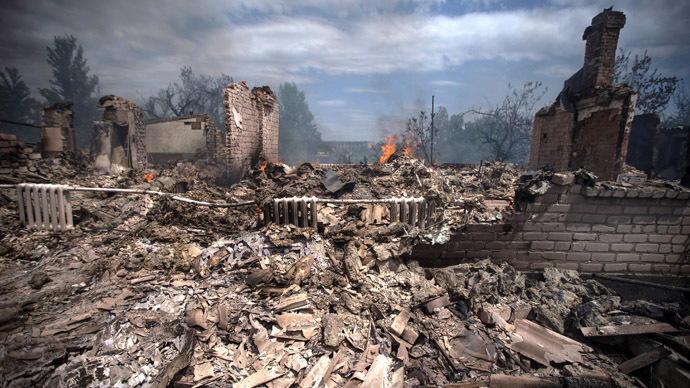
Moreover, up to 150 schools have been shut down due to fighting in the Donetsk region. Around 50,000 children did not return to school in September, as their places of learning were completely destroyed or shut down for safety reasons, UNICEF said in its report.
A total of US$32.4 million is needed to help children survive through the winter, the report concludes. The most needed items are warm clothes, shelter, hygiene supplies, and medicine.
READ MORE: ‘The highest price’: Over 1.7mn children affected by Ukrainian conflict, UN says
Meanwhile, the World Health Organization (WHO) has been warning about the critical healthcare situation in southeastern Ukraine. It revealed in its latest report that due to a lack of doctors, medicine, and food, some patients are dying from hunger and cold.
READ MORE: Patients ‘dying of hunger & cold’: WHO raises alarm over healthcare in Ukraine

The Russian Red Cross warned of a humanitarian catastrophe in eastern Ukraine back in July, calling for the immediate evacuation of children from the war zone.
READ MORE: ’Situation atrocious’: Russian Red Cross says E. Ukraine faces humanitarian catastrophe
One of the biggest obstacles to improving conditions is the politicization of aid convoys, UN humanitarian chief Valerie Amos told RT, recalling a situation with a Russian aid convoy last summer.
Since then, aid convoys have been sent by Russia, Kiev, and Germany, carrying supplies such as cereals, canned foods, generators, medicine, warm clothes, and bottled water.

READ MORE: 112 trucks carrying German humanitarian aid enter Ukraine (VIDEO)
Kiev lacks the funds to deal with the dire humanitarian situation on the ground, especially in light of the latest news that Ukraine’s GDP shrank by 7.5 percent between January and November 2014.
“There is a full-blown financial crisis,” said the head of Ukraine’s National Bank, Valeriya Gontareva. “We can only overcome it if we implement quick and even extreme reforms.”
READ MORE: Ukraine in ‘full-blown financial crisis’ – National Bank head
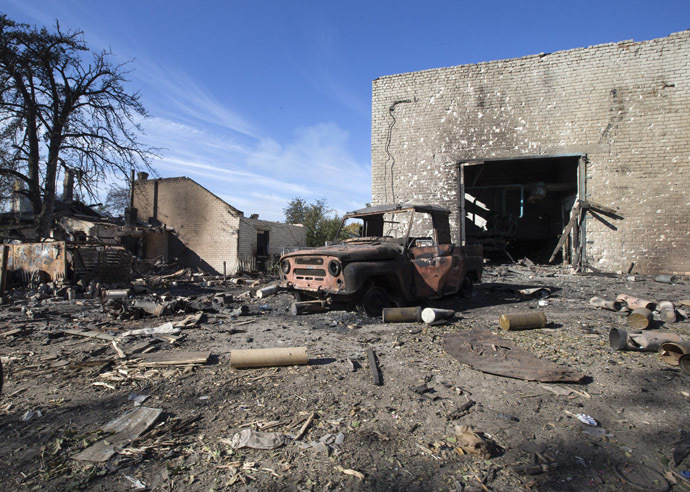
Meanwhile, a new nationwide poll has revealed that the majority of Ukrainians might even be unwilling to help the refugees, highlighting tensions in the country.
Specifically, 54 percent of respondents said they would deny help to refugees, believing it to be the country’s responsibility and not their own.
Only 16.8 percent of the respondents said they think the conflict should be solved through peaceful talks.
READ MORE: Ukrainians name Donbass deaths ‘event of the year,’ ignore EU deal – poll













